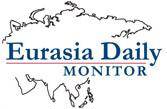It is the gas business that now primarily attracts Putin's attention, and only a select few of his trusted lieutenants from the special services, the so-called siloviki, have made the transition with him.
One point that is often overlooked in the commentary on this clash of pipelines is that Moscow is mildly irritated with the Nabucco project but not really too concerned, since the real aim of its pipeline strategy is not more gas to Europe but bypassing Ukraine.
This extra-VIP tourism will hardly help to restore economic confidence, as Putin's methods of managing the economy are limited to distributing oil revenues and tightening state control, are proving inefficient in checking the deepening crisis. President Dmitry Medvedev is trying to listen to more liberal economic opinions and has started to question the rationale behind pouring money into huge state corporations, including Russian Technologies, which instead of playing the role of "locomotives" have become a massive liability. Medvedev continues to repeat his claim that Russia will emerge from the crisis as a modernized and re-energized state. However, he is unwilling to admit that the shedding of Putin's heritage of rigid centralization is a pre-condition for such a recovery. The feeble economy is only part of the larger problem of a stagnating country, and Russians will have to go through some bitter self-assessment in order to regain the ability to see their "dear leader" as a scantily dressed quasi-emperor.







